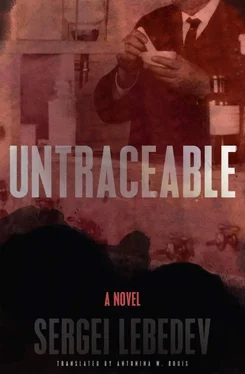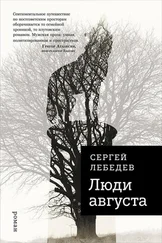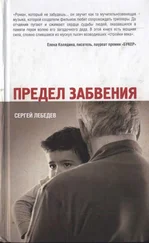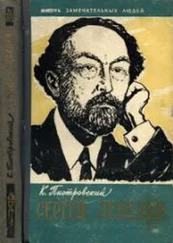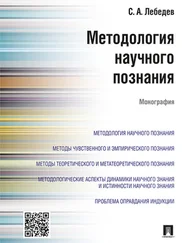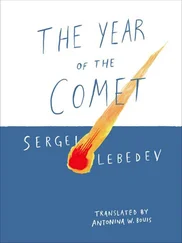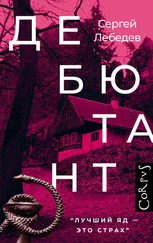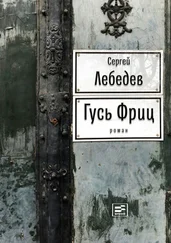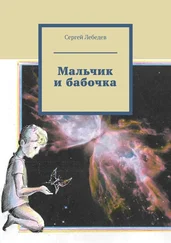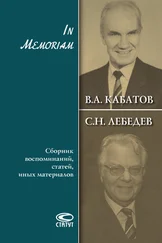Сергей Лебедев - Untraceable
Здесь есть возможность читать онлайн «Сергей Лебедев - Untraceable» весь текст электронной книги совершенно бесплатно (целиком полную версию без сокращений). В некоторых случаях можно слушать аудио, скачать через торрент в формате fb2 и присутствует краткое содержание. Город: New York, Год выпуска: 2021, ISBN: 2021, Издательство: New Vessel Press, Жанр: Современная проза, на английском языке. Описание произведения, (предисловие) а так же отзывы посетителей доступны на портале библиотеки ЛибКат.
- Название:Untraceable
- Автор:
- Издательство:New Vessel Press
- Жанр:
- Год:2021
- Город:New York
- ISBN:978-1-939931-90-0
- Рейтинг книги:3 / 5. Голосов: 1
-
Избранное:Добавить в избранное
- Отзывы:
-
Ваша оценка:
- 60
- 1
- 2
- 3
- 4
- 5
Untraceable: краткое содержание, описание и аннотация
Предлагаем к чтению аннотацию, описание, краткое содержание или предисловие (зависит от того, что написал сам автор книги «Untraceable»). Если вы не нашли необходимую информацию о книге — напишите в комментариях, мы постараемся отыскать её.
Untraceable — читать онлайн бесплатно полную книгу (весь текст) целиком
Ниже представлен текст книги, разбитый по страницам. Система сохранения места последней прочитанной страницы, позволяет с удобством читать онлайн бесплатно книгу «Untraceable», без необходимости каждый раз заново искать на чём Вы остановились. Поставьте закладку, и сможете в любой момент перейти на страницу, на которой закончили чтение.
Интервал:
Закладка:
He could only wait.
CHAPTER 23
Kalitin stopped the car at the very beginning of the drive shaded by apple trees leading to the house. There were blackberry thickets here, which occasionally provided privacy for the parked cars of teenage couples.
These were his mountains once again. No shadows. He knew that Travniček had not lied, the agents had come, and killers could be lurking nearby. But he was no longer afraid of them, did not see the night as filled with immaterial ghosts.
The only one he feared was the pastor.
Kalitin sensed that he had not hurt, not even insulted the priest. He put his entire life into a single blow, a single confession—and it merely dissipated as if he had not existed. Nothing happened. The strength, the inner strength, everything that had accumulated, hardened, pressed, burned, driven—it vanished forever. Now there was only momentum. Idling in a meaningless direction.
An old counting rhyme came to mind, something they had all whispered excitedly at Uncle Igor’s place before playing hide-and-seek.
Diddle diddle, one two three
You can’t get away from me!
A bear runs here, a bear runs there,
There are bears everywhere!
Diddle diddle, three two one
Bears are out to have some fun.
One bear growls, one bear grins
One bear hides—guess who wins!
Even Vera’s death did not horrify or repulse the pastor. His response burned Kalitin.
“Have you heard of Clara Immerwahr?” Travniček asked, as if he had the name ready at hand.
“No,” Kalitin responded indifferently.
“Fritz Haber?” Travniček asked calmly.
“Yes,” Kalitin replied carefully.
He knew the name from a special handbook with a tight thread sewn along the spine, so no pages could be removed unnoticed. When they were done studying it, they returned it to the safe in the special library. Haber. The father of nitrogen fertilizer—and the father of gas warfare, the grandfather of Zyklon B, invented in his laboratory.
“Clara was his wife. And also a chemist,” Travniček said. “She tried to talk him out of it. When she learned that he was going to the front to oversee a gas attack, she shot herself in the heart. With his gun. No church approves of suicide. But I am not a good priest. There are times when one must not abet.”
Travniček paused and then continued. “I think about the scientist who invented the poison used on me. About what you told me. It’s not just ethics: thou shalt not kill. You think that by violating the ban on testing on humans you are advancing along the path to comprehension. Taking a short cut. But that’s the point: the means begin to determine the goal. What you produce becomes a creation devoid of grace. The dimension of goodness. It is an act of the devil, I would say.”
“One bear growls, one bear grins,” whispered Kalitin. “One bear hides—guess who wins!”
He started the engine. He drove up to the house without fear. There was no one behind the trees in the dark, he felt sure of that. Maybe an hour earlier, an hour later, but not now.
The moon laid a path on the dewy grass.
Kalitin went down to the cellar, opened the safe, took out the steel box in which Neophyte slept. He opened it, for the first time in many years. A light blue bottle, looking like a wind-filled sail.
Kalitin carefully shut the box and placed it in a special attaché case that had a compartment with clasps, clicked the locks, thumbed the code wheels.
Slowly he picked up the case by the handle and set it on its bottom, feeling Neophyte flowing in the bottle, turning over in its sleep.
He unscrewed the body of his computer and took out the hard drive. That was it.
Kalitin put the attaché case on the backseat, fastening it with the safety belt.
The house. He looked back. The ceiling lamp was on in the study. Let it be. The ones who come will think he’s there.
Kalitin remembered that he had left the light on in his hotel room when he went out into the night, to flee. The light was similar, yellow with an orange tinge. Long ago, forgotten. The lamp on father’s desk had the same glow. He realized it was just a coincidence of visible spectrums but he had never felt such power, the inner meaning in a natural similarity of tones and shades.
An unbearable desire engulfed him: to break this chain of dead-end escapes. To go back to where he was still the boy stopped at the door of the Third Entrance.
The pine tree air freshener swayed in the windshield: diddle diddle, one two three.
He thought he didn’t know where to go; he had forgotten the necessary turns, signs, the layout of the whole area. But he hit the gas; he couldn’t sit inert, couldn’t wait, couldn’t believe in the possibility of salvation.
One bear hides—guess who wins!
Second gear. The road was uneven. No problem, he would drive slowly. It wasn’t far to the asphalt.
Kalitin pictured Travniček, dead, clumsy in his cassock, collapsed in front of the altar, and opened the window to breath the bitter night air. He would get out of here. Go to a distant country. But first he had to get rid of the witness.
He thought he could smell success, the mindless, crafty success of fleeing fugitives who had followed these paths.
The front wheel hit a stone. The car bounced, the undercarriage cracked.
Kalitin fell asleep not knowing that he had died, as had the swallows, wood beetles, worms, woodlice, and moles. The car had rolled down the slope into a ditch, and the engine ceased in the moonlight. Neophyte vanished through the tiniest crack in the bottle’s spray pump, flew off into the astral plane, lost among the atoms and molecules.
When the police car arrived, summoned by vigilant villagers who had seen the headlights shining motionlessly into the field, even the faintest odor had disappeared.
The police officer called at Travniček`s door; some of the villagers had reported seeing the solitary newcomer the previous day. With the priest.
It was still dark, with no trace of dawn.
Travniček was absolutely exhausted. He was waiting for the visitor to return.
But when he understood what happened, he thought about the men pursuing Kalitin. Men with hearts of steel. He was strangely sure they hadn’t arrived yet. But the police didn’t even know they were en route. It was up to Travniček to seal their fate.
He hesitated a bit. Recalled Kalitin’s fear of the shadows chasing him. And merely said to the officer: It seems the story is not yet over…
Shershnev awoke before the alarm. Grebenyuk, hunched over, was vomiting in the toilet. His face was white.
“Shitty meat,” the major rasped. “Unused to it. You were lucky. My insides are heaving. I can’t drive.”
Shershnev dressed. He put the container in his inside pocket.
“Wait here,” he said. “I’ll pick you up on the way back.”
Grebenyuk threw up.
“Just don’t call for an ambulance,” Shershnev said. This situation didn’t seem odd to him. He thought it was as it should be. It would be easier alone. The thought that Grebenyuk poisoned himself or was good at faking it flew by and vanished. No, the major was just unlucky. Something bad was bound to happen, and it did.
People were still sleeping at the parking lot. The helicopter was gone. Bulldozers crawled around the avalanche, moving boulders. One lane, marked with flags, was already open. A worker waved him on, and Shershnev hit the gas, enjoying the car’s response.
He went down the serpentine pass and turned onto a side road. The valleys were still swirling with fog, even though the sun was rising over the ridges. It was the hour when animals awakened before the peasants, and Shershnev felt a new surplus of time, driving faster than Grebenyuk had the day before.
Читать дальшеИнтервал:
Закладка:
Похожие книги на «Untraceable»
Представляем Вашему вниманию похожие книги на «Untraceable» списком для выбора. Мы отобрали схожую по названию и смыслу литературу в надежде предоставить читателям больше вариантов отыскать новые, интересные, ещё непрочитанные произведения.
Обсуждение, отзывы о книге «Untraceable» и просто собственные мнения читателей. Оставьте ваши комментарии, напишите, что Вы думаете о произведении, его смысле или главных героях. Укажите что конкретно понравилось, а что нет, и почему Вы так считаете.
